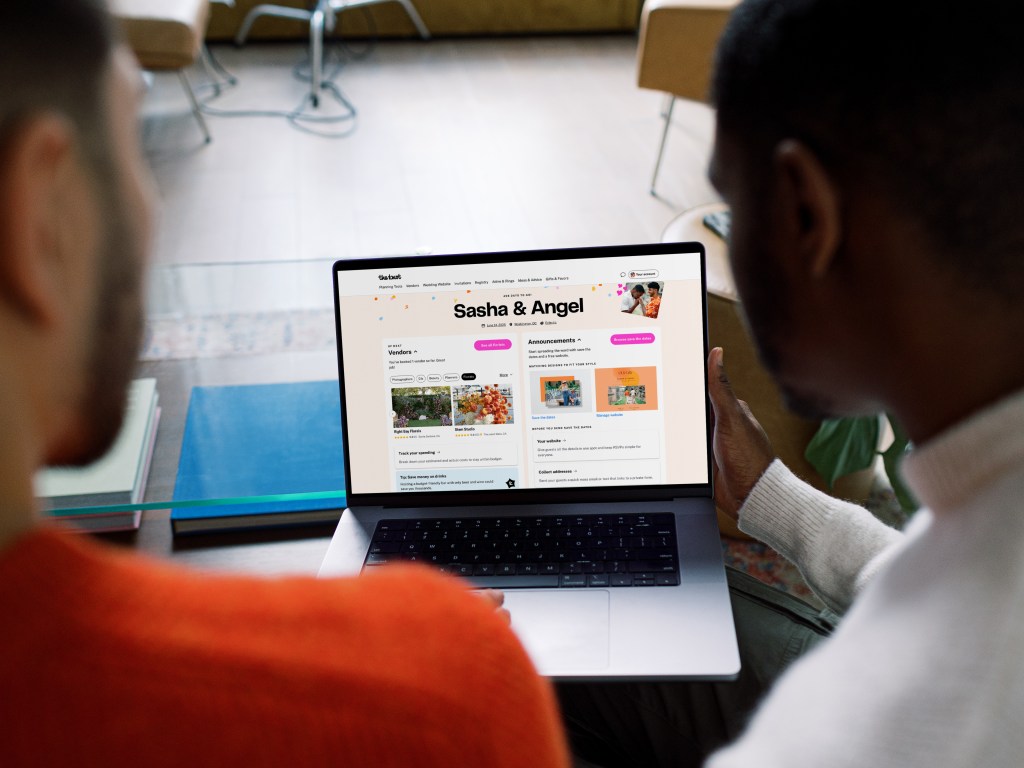Ultimate Guide to DEI in Your Wedding Business

DEI—diversity, equity and inclusion—has been a massive topic of conversation over the last few years, and for good reason. The largest and most diverse group of people ever is getting married right now, and as a wedding business owner, this gives you so many new audiences to tap into. But before you start advertising and marketing to those new audiences, it’s essential to step back and consider how the DEI conversations can apply to your business.
DEI encompasses a lot of societal and systemic issues, and diving into these topics can be overwhelming, especially if you’re doing the work on your own. But, to grow your business—and grow as a business owner and person—it’s essential to take these first steps.
Read on to learn more about DEI and how you can use tactics derived from it to create a space where current and future clients can feel safe, seen and respected.
What is DEI?
Before we dive into how to incorporate DEI initiatives into your business, we need to go over what DEI actually is.
DEI is the practice of continually confronting and unlearning unconscious biases (more on these later) to create a space where people from different backgrounds and social positions can come together and feel safe. Many businesses—large and small—are implementing DEI initiatives across their operations to broaden their perspectives and intentionally champion more voices.
What’s the difference between diversity, equity and inclusion?
Each arm of DEI covers a different section of these larger conversations, and it’s essential to understand each component fully.
- Diversity – The presence of differences among people, experiences, and perspectives regarding identity, including race, gender identity, sexual orientation, religion, dis/ability (differently-abled), socio-economics, political affiliation and more.
- Equity – The concept of being fair and impartial by meeting people and perspectives where they are to ensure they can thrive regardless of experiences or social position.
- Inclusion – The idea that all people feel as though they belong and are respected in the space they’re occupying.
These topics come together to form a holistic net that protects and advocates for underrepresented communities, helping everyone thrive and succeed.
Why is DEI important in the wedding industry?
The wedding industry is vast and multifaceted, but a lot of what we see in the media features luxury weddings with young, able-bodied (cis-gendered) men and women who host people from primarily their community. And while these weddings are certainly beautiful affairs, there’s often not much representation of couples from underrepresented communities. This reinforces the idea that weddings can only look one way, and everything else is an “alternative”. Additionally, it may make both couples and pros from underrepresented communities feel left out or unwelcome in the industry. Even though there has been a shift towards showcasing incredible weddings from different communities, there’s still a long way to go.
And today’s couples are noticing and actively challenging the current state of weddings because they’re passionate about inclusivity, allyship and representation. They’re so eager, in fact, that a lot of couples go out of their way to support brands and people who align with their beliefs. Additionally, they’re adding personalized elements to their weddings to accommodate everyone in attendance. From including diet-compliant foods to their reception and ensuring their venue is accessible to adding cultural or religious aspects to their ceremonies, this trend towards extra consideration is on the rise.
The work starts with you
No matter what your background, it’s important to implement diversity, equity and inclusion initiatives into your wedding business. Not only will it make your services objectively better, but it will also open you up to new audiences looking for pros who can accommodate their needs.
But before this can happen for your business, you need to put in the work. The first step to incorporating DEI into your business is to acknowledge that everyone has advantages or disadvantages that affect how society treats them. The next step is to understand the unconscious biases that you have and how they may affect your service offerings.
Unconscious biases are stereotypes about individuals or specific groups that form without you even being aware of them. For example, if someone cuts you off in traffic, you’ll likely assume that they are always a reckless driver, which can lead to you unconsciously thinking that they are a bad person because of it.
We all have our own set of unconscious biases, and though they are deeply ingrained, they can be unlearned. A great place to start is Project Implicit, a Harvard-run series of assessments that covers a wide range of topics and is geared towards uncovering biases. They’re incredibly eye-opening and can provide a foundation for your unlearning process.
Another way to unlearn your unconscious biases is to examine the thoughts behind your actions and choices. Continuously ask yourself questions like:
- Why do I think this way?
- What experiences have led me to feel this way?
- How can I change my perspective?
Learning about DE&I is an ongoing process that will involve amazing realizations and uncomfortable truths but you and your wedding business will grow because of the work you’re putting in now.
5 immediate action items to use when incorporating DEI into your wedding business
Use more inclusive language in your marketing
It’s essential to be as inclusive as possible when you’re writing, speaking and thinking about your couples. You can start by avoiding assumptions about someone’s pronouns and by avoiding gendered or origin-based words. Here are some good rules of thumb:
Avoid words like:
- Bride
- Groom
- Minority
- Elderly
- Blue Collar
- Housekeeping
- Powwow
- Tribe
- Spirit Animal
Instead, use words like:
- Couples
- Partners
- Underrepresented
- Senior
- Lower-income
This is by no means a comprehensive list of words and phrases to avoid and use, so be sure to continue refining these lists as you interact with new clients. Additionally, if you’re unsure about what language to use, listen to how a specific group of people refers to themselves or ask a member of that community. That way, you’ll have the best information possible.
Pro tip: As you’re learning how to use language more inclusively, it’s important to also implement those learnings into your advertising and marketing materials and contracts. Please read through our reasons for including diversity in marketing to get started.
Re-evaluate who your ideal client is
Even though you likely have a clear picture of who your ideal client is, it’s crucial to think about all of the other groups of people that could also fit into that picture if you view it from a different perspective. So, go back to the drawing board and think about the broad categories of people you want to serve. Then, take a step back and look for any gaps in representation.
Connect with diverse pros in your area
Connecting with like pros is the best way to build a community. But it’s essential to make one that can bring different perspectives to the table. So, go out of your way to network with pros from a variety of backgrounds who provide wedding services to people who are not like you. Doing that will expose you to so many different experiences and broaden your horizons.
Pro tip: As you’re growing your network, it’s also a good idea to go back to your already established community of pros and review their preferred vendor lists to make sure they include diverse pros. If it needs some work, feel free to introduce them to your new connections so they can jumpstart their DEI process as well.
Constantly practice introspection
Again, becoming more inclusive and equitable to a more diverse audience begins with you. As you sign on more clients and grow your business, be sure to check in with yourself to make sure you’re continuously confronting your biases so you can be the best partner to your clients.
Pro tip: Practicing introspection will inevitably make you and your brand more authentic to your prospective clients, but that’s not all you can do to boost your brand authenticity. Read through three more ways to increase brand authenticity so you can strengthen your relationship with your audience.
Be open to feedback and continued learning
The key to growing your business is never to stop learning. And on top of the business education that you’re likely investing in, be sure to invest in interpersonal and emotional education as well. So, read books written by authors who are different from you, talk to pros and couples from other communities and reach out to past clients to get feedback on areas where your services could expand to be more accommodating. You’ll be surprised at how much room there is for you to learn and grow.
Pro Tip: As you’re learning more about DEI, you can pass along this knowledge to your clients. Please read about some ways you can help your couples be allies throughout their wedding-planning process so you can spread the wealth.
Photo Credit: Supavadee butradee // Shutterstock.com
Let's grow your business together!
Start advertising on The Knot and WeddingWire, the top two wedding planning platforms.


